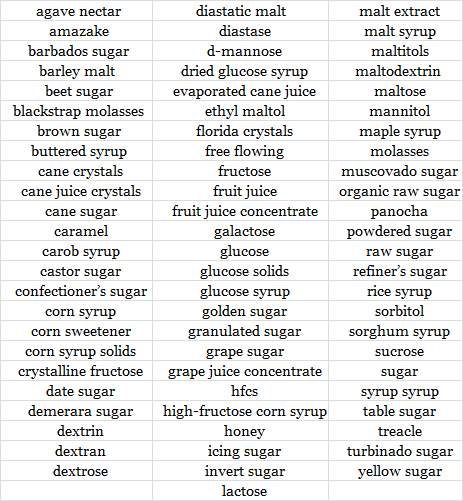FAQ's
- Question
1. People most often ask me how they identify if they are sensitive to something and what are most common foods they could be reacting to:
Answer
The Sensitive Seven
1. Dairy Products
2. Soya
3. Wheat
4. Eggs
5. Corn
6. Peanuts
7. Sugar
At all times please avoid any synthetic sweeteners and low fat products. Carbonated cold drinks are on the not acceptable list as well. These are unacceptable for wellness seekers to put in their bodies! To add to this list of reactive foods, it is recommended to stay off the following for at least the initial 6 months to help the immune system cope with detox symptoms:
Meat, Chicken, Fish , Potatoes, Tomatoes, Oranges
Common symptoms that may be experienced if you ingest a food your system is reactive to:
- Heart beats faster – heart palpitations
- Feeling of having to clear throat within 20 min to a few hours of ingesting due to feeling of fullness
- Post nasal drip and snoring when asleep
- Runny nose after eating or a dry, irritating cough from a slight post nasal drip
- Sinusitis
- Feeling of lethargy - a sense of your energy being tapped out
- Swelling of any part of your body: hands, feet , ankles, under your chin, fullness in the face: often only slightly noticeable to very obvious – depending on the sensitivity
- There can also be a form of “restless leg” feeling when sitting and sleeping
- A general feeling of jitteriness
- Craving, very badly, for more of a food is often a strong indication of sensitivity when allied with other symptoms mentioned above.
It is obvious that if you come out in wheals and/or your air passages start swelling shut, that you are highly allergic, not just sensitive, to a food.
AVOID AT ALL COSTS!
PLEASE REMEMBER TO READ LABELS!
- Iodine is a prime example of this.
- Sugar and corn come disguised in many formats.
Be aware of ingredients listed as:
- Approved flavourants – often a front for MSG (Mono Sodium Glutamate)
- 1. Corn syrup
- 2. Sucrose
- 3. Maltose
- 4. Dextrose
- 5. Maltodextrin
- Approved sweeteners - hidden synthetic sweeteners
- 1.Gelatine
- Modified starch – often a cute name for corn/maizena
- Colourants now come as numbers, so avoid when in doubt
Sugar, starch, salt and corn by any other name is still sugar, starch, salt and corn!
- Question
2.What are Acid and alkaline foods?
Answer
Acid-Forming and Alkali-Forming Foods
For optimal bone health, you don’t want to eat only alkali-forming foods. It’s important to have a balance between both acid forming and alkali forming. The problem is the typical diet has become more acid forming and doesn’t contain enough alkali-forming foods.
It’s also important to keep in mind that a food’s acid or alkali-forming effect is not the same as the actual pH of the food itself. For instance, we all know that citrus fruits are acidic, but they produce alkali in the body once they’re digested.All of the following foods cause the body to produce alkali that will compensate for the acid-forming proteins from meat, cow’s milk, and high-protein legumes:
High Alkali-Forming:
Asparagus, Onions, Parsley, Raw Spinach, Broccoli, Lemons, Watermelon, Limes, Grapefruit, Mangoes, and Papayas.
Moderate Alkali-Forming:
Okra, Squash, Green Beans, Beets, Celery, Lettuce, Zucchini, Sweet Potatoes, Dates, Figs, Melons, Grapes, Papaya, Kiwi, Berries, Apples, Pears, and Raisins
Low Alkali-Forming:
Carrots, Tomatoes, Fresh Corn, Mushrooms, Cabbage, Peas, Cauliflower, Turnips, Olives, Soybeans, Tofu, Oranges, Bananas, Cherries, Pineapples, Peaches, Avocados, and Potato Skins.
And, of course for the best in health, you should try to eat organic forms of these foods to cut back on the consumption of pesticides. The following acid-forming foods aren’t necessarily bad for you, but you should try to balance your consumption of them with the alkali-forming foods listed above:
Low Acid-Forming:
Cooked Spinach, Kidney Beans, String Beans, Plums, Processed Fruit Juices, Whole Grain (brown) Breads, Brown Rice, Liver, Oysters, Venison, Cold Water Fish, Cream, Eggs, Butter, Yogurt, Buttermilk, Cottage Cheese, Corn Oil, Sunflower Oil, Margarine, Lard, Tea, Cocoa, Processed Honey, Pumpkin Seeds, Sesame Seeds, and Sunflower Seeds
Moderate Acid-Forming:
Potatoes (without skins), Pinto Beans, Navy Beans, Lima Beans, Sour Cherries, Rhubarb, Canned Fruit, White Rice, Corn, Buckwheat, Oats, Rye, Turkey, Chicken, Lamb, Raw Milk, Pecans, Cashews, Pistachios, Coffee, Wine, White Sugar, Brown Sugar, Molasses, Jam, Ketchup, Mayonnaise, Mustard, and Vinegar
High Acid-Forming:
Blueberries, Cranberries, Prunes, Sweetened Fruit Juice, White Bread, Pastries, Biscuits, Pasta, Beef, Pork, Shellfish, Wheat, Cheese (especially sharp or crumbly cheeses), Homogenized Milk, Ice Cream, Custard, Peanuts, Walnuts, Beer, Liquor, Soft Drinks, Artificial Sweeteners, and Chocolate
- Question
3. What other names is sugar is also hidden under
Answer
"please avoid"
please remember to avoid synthetic sweeteners, they are worse for you than sugar, they are not an acceptable substitute.
